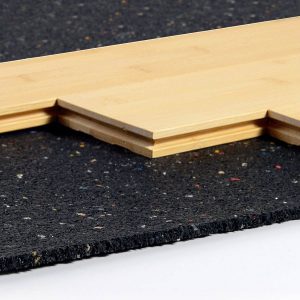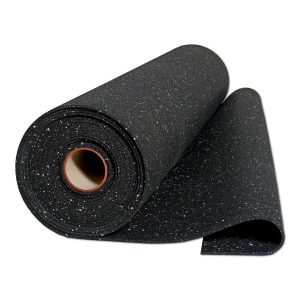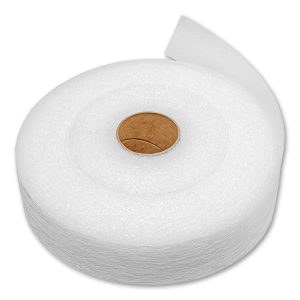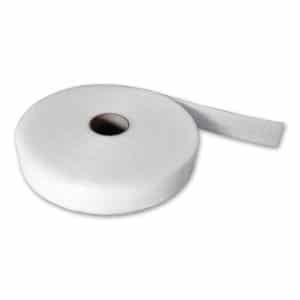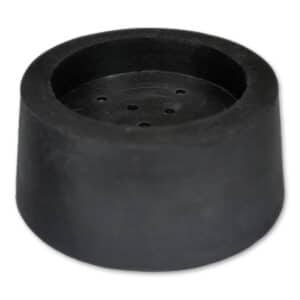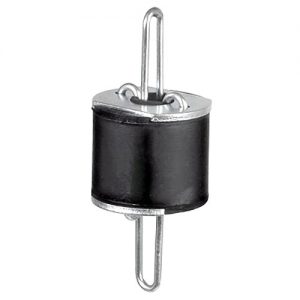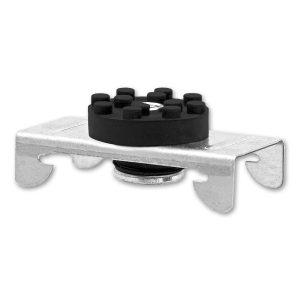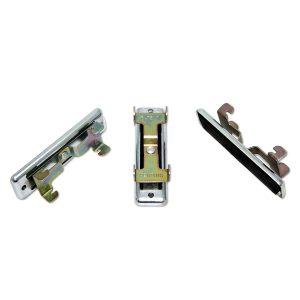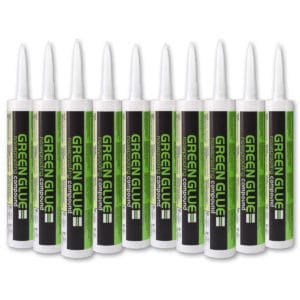What is Vibration Control?
Vibration control is the process of interrupting the physical transmission of sound through an object. This may be done through mechanical means, using various damping compounds, or inserting vibration-absorbing rubber and neoprene between construction assemblies or machinery parts.
Floor Underlayments
Floor underlayments are installed underneath finished floor systems to reduce impact noise, footfall, and the physical transmission of sound. Acoustic floor underlayments help structurally isolate the top finish layer from the rest of the components. These types of assemblies are commonly known as a ‘floating floor.’ This essentially ‘short circuits’ the sound and breaks the connection between materials in the completed assembly. Our Iso-Step® Soundproofing Underlayment is manufactured from recycled rubber and may be used in a wide range of flooring assemblies. Rubber is a resilient material that absorbs and disperses impact energy very well. For use in gypcrete and other concrete flooring applications, the Acousti-Mat® Floor Underlayment is the popular choice. The mesh mat creates an airspace with minimal surface contact with the underlying subfloor. Both of these materials are installed under flooring finishes to generate a higher IIC (Impact Insulation Class) rating for a construction assembly.
Machine Mounts and Hangers
Vibration control for machinery typically requires isolation pads, mounts, washer bushings, and hangers to short-circuit sound at their contact points. Consisting of high-grade neoprene, prevent sound from transmitting to the floor from machinery legs by placing our Isolation Cup Mount or attaching the Mason Industries Isolation Mount underneath. Vibration Isolation Pads can be placed under machinery that does not have specific leg mounts. Mason Industries Isolation Washer Bushings are useful when installing isolation pads and when creating other assemblies. To isolate items that hang from the ceiling like grid systems, pipes, and ductwork, look to the Mason Industries Isolation Hanger.
Room Isolation
When creating wall, floor, and ceiling assemblies, various methods of attachment may be deployed to reduce sound transmission. Resilient Sound Isolation Clip (RSIC-1) and the Green Glue Whisper™ Clip install in conjunction with a resilient channel to isolate the initial wall layer from the underlying structure of the building. Once a single layer of drywall has been installed, to isolate subsequent layers of drywall use Green Glue Noiseproofing Compound between the layers.
Metal Damping
Manufacturing lines, conveyors, bins, chutes, hoppers, or other types of metal panels require vibration control by damping. Lightweight metal parts or housings are subject to sympathetic vibrations or ringing. This generates noise that is either irritating or may not pass safety or noise regulations. Antivibe® DL-10 Metal Damping Compound applies directly to the metal ringing surface either by spraying or troweling the compound. If you want a completely DIY material, our VibStop Vibration Damping Sheet is a self-sticking rubber sheet that is simply ‘Peel-and-Stick’.
To learn more about how Acoustical Solutions can solve your noise control problems, use our contact form, call one of our Acoustical Sales Consultants at (800) 782-5742, or visit us on the web at acousticalsolutions.com.
